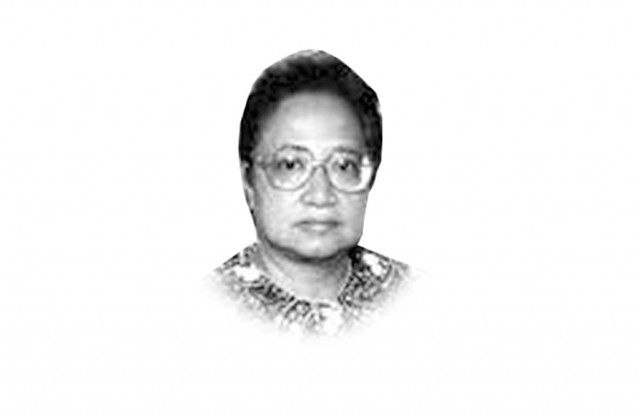Gambling with land
‘Socially responsible agricultural investment’ is actually transfer of state lands from peasants to foreign companies.

Early this month, Pakistani stakeholders met to draw the government’s attention to inevitable disaster if land-grabbing continued unchecked. Not a single minister or parliamentarian came, though the meeting was held in Islamabad for their convenience. Only Sharmila Farooqi, flew in as a general punching-bag in lieu of evasive government.
Accompanying unrestricted trade by giant food commodity trading companies are global speculators, mega private banks, hedge funds and even prestigious American universities. So is the World Bank, which is supposed to be a development bank, but is as predatory as the rest.
Having exhausted all other avenues, investor focus had turned to food and land. According to an NGO, GRAIN, $100 billion was invested in food commodities alone. Because there is no transparency and investors are protected by privacy laws and anonymity, no data is available on global food and commodity markets. None of this can happen without government complicity.
When wheat shortages hit Pakistan in 2008, President Zardari promised all would be hunky-dory by the year’s end. It was the first of many shortages not to be taken seriously, shrugged off by the government as a worldwide phenomenon.
Once, farmland and water were never allowed to be commodities since they were axiomatic to life and survival. Today, they are bought and sold at will. Consequently, people today demand the right to food, land and water to be recognised as fundamental human and constitutional rights. For this reason, Olivier de Schutter, UN special rapporteur, highly critical of the World Bank, has proposed certain ‘minimum human rights principles’ to the UN Human Rights Council.
In 2008, in response to the global food and financial crisis, World Bank President Robert Zoellick called for an overhauling of international food policy to improve food security in the South. A report on global land deals was promised by 2009. It hasn’t materialised yet. However, a report analysed facts and figures available in the media to ascertain what factors attracted land-grabbers. They included weak governance, the availability of massive acreages and options for importing intensive technologies for high productivity and profits. The report conceded that impacts on local communities were not good, environmental impact assessments were rarely carried out and people were displaced without compensation.
Nothing was more reprehensible than the double-game played by the World Bank. Its other face and private arm, the International Finance Corporation (IFC), freely indulges in private deals; it can do what the World Bank officially cannot, and maintains a low profile. In 2009, the IFC made plans to increase investment in agribusiness by 30 per cent in the following 3 years!
The respected Oakland Institute in the US revealed in its report “(Mis)Investment in Agriculture: The Role of the International Finance Corporation in the Global Land Grab”, that “the IFC actually increased the ability of foreign investors to acquire land in developing country markets through its Foreign Investment Advisory Services promoting ‘Access to Land’ and the ‘Land Market for Investment’,” while offering advice on how easily land could be obtained. Furthermore, it said that “the creation of ‘investment promotion agencies’ and rewriting of national laws has provided the institutional back up for such investment. It has lost sight of its principle mission, which is to alleviate poverty.”
It highlighted Pakistan’s case to illustrate the IFC’s involvement in having the government change laws and allow unwarranted favours to foreign investors, in giving leases of up to 99 years in which investors retain 100 per cent proprietary rights, 10-year tax holidays and the right to export 100 per cent of the produce.
The UAE reportedly purchased over 800,000 acres in Punjab, which could feed at least 25 times as many people or support 80,000 to 150,000 profitable family farms or enterprises. It threatens to displace an estimated 25,000 villagers, mostly subsistence farmers. The Musharraf government had catalysed the problem with its reckless corporate farming offer. Ironically, the present government seems delighted with carrying it on. Quickly hushed up were secret negotiations for Balochistan land.
The Oakland Institute called for the IFC — which has so far lent $2 billion in agribusiness and biofuels — to be investigated and held accountable, and for stopping the World Bank from promoting them. According to latest documentation presented by the Land Deal Politics Initiative, at a recent international conference, $4.5 trillion have been spent to date on leasing 200 million acres of farmland worldwide — the size of a country or several countries — along with scarce water, since land is useless without water.
Last year, a global campaign was spearheaded by major international NGOs and movements, GRAIN, FoodFirst Information and Action Network, Land Research Action Network and the million-strong Via Campesina, representing 60 countries. They opposed the ‘guiding principles’ endorsed by the World Bank, the Food and Agricultural Organisation, the International Fund for Agricultural Development and the UN Conference on Trade and Develpoment on so-called ‘responsible’ land investments, and called for an immediate end to land-grabbing.
As activists have questioned, was Pakistan created for Pakistanis, or to serve continuing colonial interests?
Published in The Express Tribune, July 22nd, 2011.














COMMENTS
Comments are moderated and generally will be posted if they are on-topic and not abusive.
For more information, please see our Comments FAQ